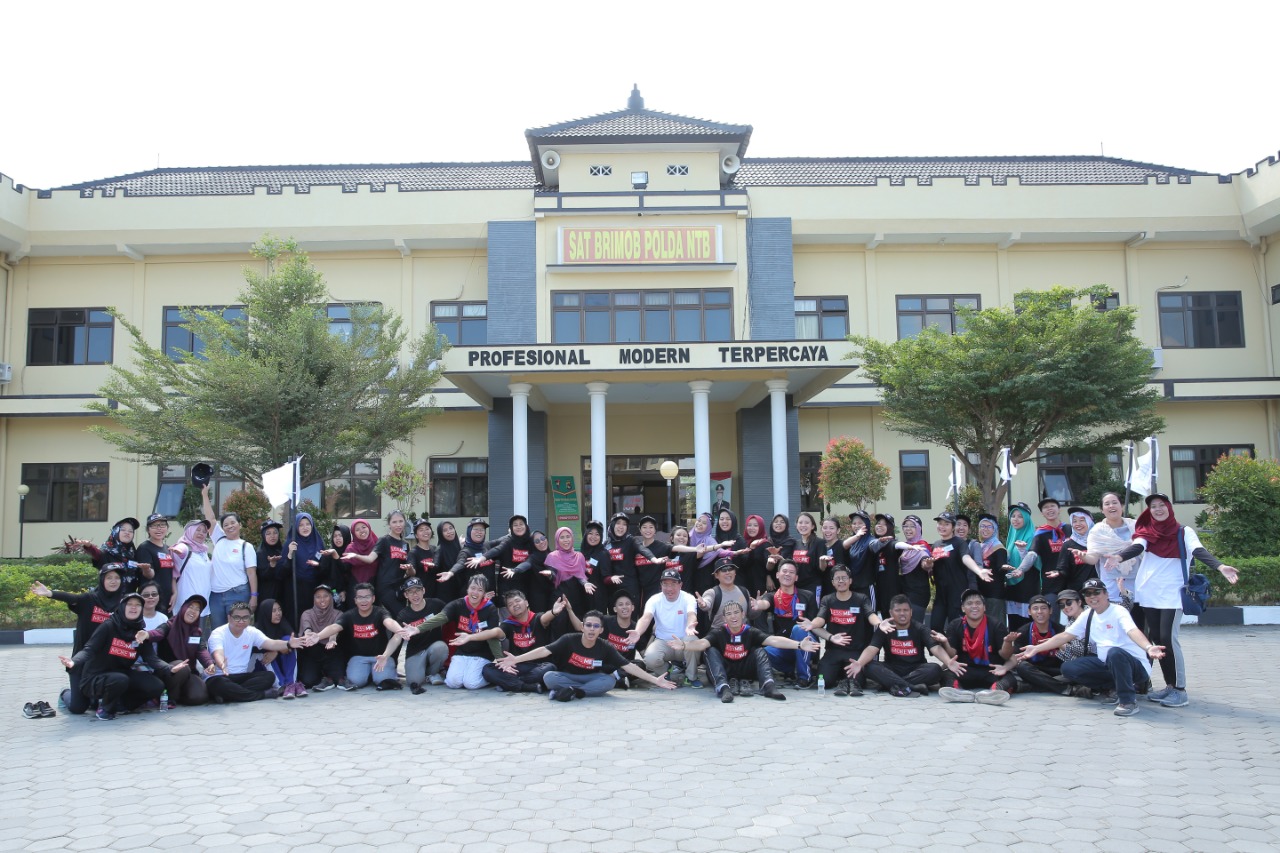INDOHUN, as an organization specializing in capacity building for health resources, has been committing to contribute in strengthening the capacity to collaborate and coordinate in term of global health issues in Asia. It aims to introduce the concept of One Health, recognizing that the health of people is connected to the health of animals and the environment, to solve global health problems which combines public health, veterinary health, and environmental health. To achieve the goal of that approach, it needs a strong connection between each sectors and disciplines to collaborate. The background for this action was started when the global communities faced many scary infectious diseases in a large scale. Last of 2014, there was transmission of Ebola virus from animal to human. Furthermore, this phenomenon happened and spread quickly from human to human in Central and West Africa. Those cases showed that diseases are happened without giving alarm to infect some country and entering other countries easily. Therefore, recognition of one country to others is very important to stop the disease. This recognition is called collaboration and coordination among health workforces and health-related sector.
In line with that background, INDOHUN has been conducting leadership training since 2014 to prevent those phenomena happened in the future, Global Health True Leaders 2.0 (GHTL 2.0). This year, the training was conducted on July 16- 23 July, 2018, in Lombok, West Nusa Tenggara, Indonesia. This training was conducted for eight days with composition of 4 days for leadership and collaboration class, 2 days for local empowerment, a day for cultural trip, and a day for team building activity. The purpose of in-class training is to facilitate the participants to build an awareness of global health condition and the problem that humanity might face. It showed a big picture of world health condition and where they can contribute for it. In line with that reason, participants learned several topics related to global health issues such as antimicrobial resistance issue, wildlife issue, and One Health. Those topics were given by Christopher A. Whitter (Director of Conservation Medicine Program & Research Assistant Professor, Cummings School of Veterinary Medicine, Tufts University), Benyamin Sihombing (World Health Organization, Representative to Indonesia), and Benjamin. D. Anderson (One Health Commission representative and Head of One Health team from Duke Kunshan University). Then, they also learned about tool that can help them to make a health program. This topic was given by Jeffry Mariner (Research Professor, Tufts Cummings School of Veterinary Medicine, Cummings School of Veterinary Medicine, Tufts University.

Furthermore, as the next generation of health and health-related workforces, growing awareness can lead them to identify the value of themselves as a leader that will lead the future and make a change that you want to see in the future. By doing this, it will reflect the value of their life that will be used to take an action for it. This leadership value can bring them to be a leader that can lead each other with different background but has one vision. This topic was led by Prof. drh. Wiku Adisasmito., M.Sc., PhD (INDOHUN coordinator and adjunct professor in Tufts University). In addition, to equip participants with comprehensive knowledge, they had been given others topics that were necessary such as social initiative that was given by Samantha Barbara Islan, (Chairman of board Love Pink) and Kemal Soeriawidjaja (Partnership ID).

In addition, not only does the understanding of global health condition play an important role, but the sensitivity of culture, disciplinary, and knowledge of technical skill are necessary to be understood as the health leaders. In line with those values, the participants had lived with local community to enhance their knowledge of culture, health, and tolerance for 2 days and 2 nights. They lived in Penujak Village, Lombok Tengah. This village is known the oldest pottery producing village in Lombok. In that village, they had to educate people based on their problems then, they had to identify the problem first while they were doing the live-in. So, we can decide the targets of the intervention. They also learned how culture can have reciprocal relation to health. Therefore, they can develop effective strategy to improve local community health. Moreover, in order to do that, the participants had to collaborate with other disciplines since they came from different discipline. This action leads them to be more open-minded and build a strong connection to others.

Beyond all of those things above, strong determination and discipline are the key to shape the best human resources. Therefore, this training collaborated with West Nusa Tenggara police. They had to join morning exercise every morning to develop and build healthy lifestyle especially for future leaders who need to respond with tight schedules and close deadlines. Then, they had to join a leadership field activity which was outbound. This activity was designed to build a strong knot between each other. Then, having that knot can help them to collaborate easily in the future. To recapitulate, this training is dedicated to accelerate the implementation of disease prevention in Asia region.

